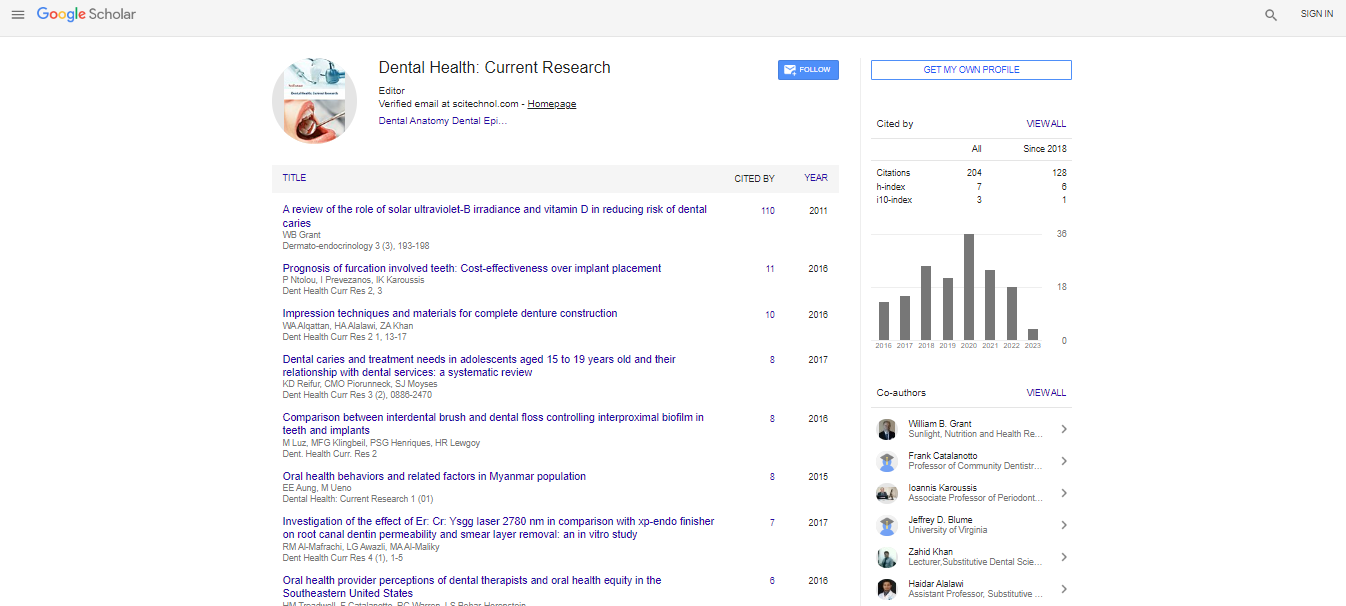Interaction with bio-interactive dental cements
Vamshi Mohan Pandari
Cosmetic Dentist, United Kingdom
: Dent Health Curr Res
Abstract
Dental cements are an important part of restorative dentistry because they provide mechanical support and sealing properties for various dental restorations. Recent advancements in dental material science have resulted in the creation of bio-interactive dental cements, which can interact with the biological environment in the oral cavity to promote tissue regeneration and limit bacterial growth. Secondary caries, is an area of concern for the dentists and dental care professionals, is a complex phenomenon, accounting to the ineptitude of the practitioner and the bacterial load of the carious extension. Most often, if the complete seal is in place, the entrapped bacteria in the infected enamel and dentin can still proliferate and cause secondary infection, termed as Microleakage. Chlorhexidine, a popular disinfectant, inhibits secondary caries, if the demineralized dentin coated as a primer, in certain dental adhesives. G(2)-isocyanatoethyl-methacrylate (G-IEMA) is a novel methacrylate dendrimer, that can replace the BPA in adhesive systems. The dysbiosis of the oral microflora is unpredictable, causing sudden onset of caries progression in restored teeth. This uncertainty led to the discovery of antimicrobial release agents and their incorporation into the restorative materials. The sustained release of anti-biofilm agents, not only inhibit the bacterial progression but also prevent further loss of dental structure and even the costs incurred to restore it multiple times. Nanoparticles, like silver and zinc oxide are the current research avenues, that study biomechanics of release and its biocompatibility. The presentation will begin with a review of current restorative dentistry difficulties and the need for bio-interactive dental cements. The composition, mechanical properties, and biocompatibility of each type of cement, as well as their prospective therapeutic uses, will be thoroughly explained. The lecture will finish with material limitations and future research on dental adhesive systems. A meta-analysis also reported that there is scarce evi-dence to recommend or negate the usefulness of MMP inhibitorsapplied prior to inserting adhesive restorations.
Biography
Vamshi Mohan Pandari is a cosmetic dentist in United Kingdom. He is also a social media activist and runs a community named “What is Life”.
 Spanish
Spanish  Chinese
Chinese  Russian
Russian  German
German  French
French  Japanese
Japanese  Portuguese
Portuguese  Hindi
Hindi 